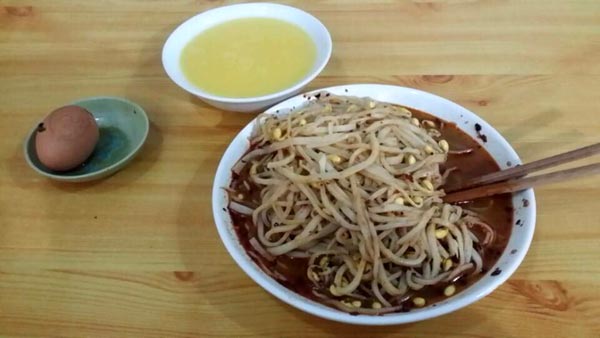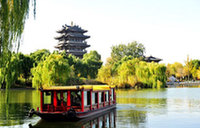Dreams of my hometown
 |
|
A typical Ankang breakfast features a bowl of zhengmian noodles.[Photo by Liu Zhihua/China Daily |
In China, when two strangers meet, a common question is "Where is your hometown?".
But every time someone throws that query at me, I find a barrage of questions follow.
"I'm from Shaanxi province," I answer, hoping they will accept my answer, although I know they will not.
"You don't look like someone from Shaanxi!" they exclaim.
The stereotype goes that people from Shaanxi province are tall, rough and bold, like the Terracotta Warriors in Xi'an - nothing like the way I look.
The question then leads to my explanation that my birthplace, Ankang city, is at the southern edge of Shaanxi, and is actually closer to Southwest China's Sichuan province in geography and climate than to Shaanxi.
Sometimes, I simply respond with "yes, I don't look like someone from Shaanxi province" and remain silent.
It is not that I don't like my hometown, far from it. Life there is so peaceful and pleasing that every time I go back, I don't want to return to Beijing.
Its climate is very agreeable. Even during the coldest days, the temperature is often above frozen, and there are seldom winds.
In summer, it is scorching hot. But the city is surrounded by hills and has lots of rivers to provide numerous cool parks. There are tea houses and restaurants by the river and plenty of shady trees for people to relax under and play mahjong.
One of the most famous parks is Xiangxi Dong, literally "fragrant creak and cave".
It was originally built in the Tang Dynasty (AD 618-907), and is special in Taoist history. Legend has it that Lyu Dongbin, one of the eight famous immortals revered by the Taoist, practiced his Tao and met other immortals in the eight caves there.
Since the early years of the Ming Dynasty (1368-1644), the area has become one of the most important places for Taoists in Shaanxi, after a Taoist temple was built.






















